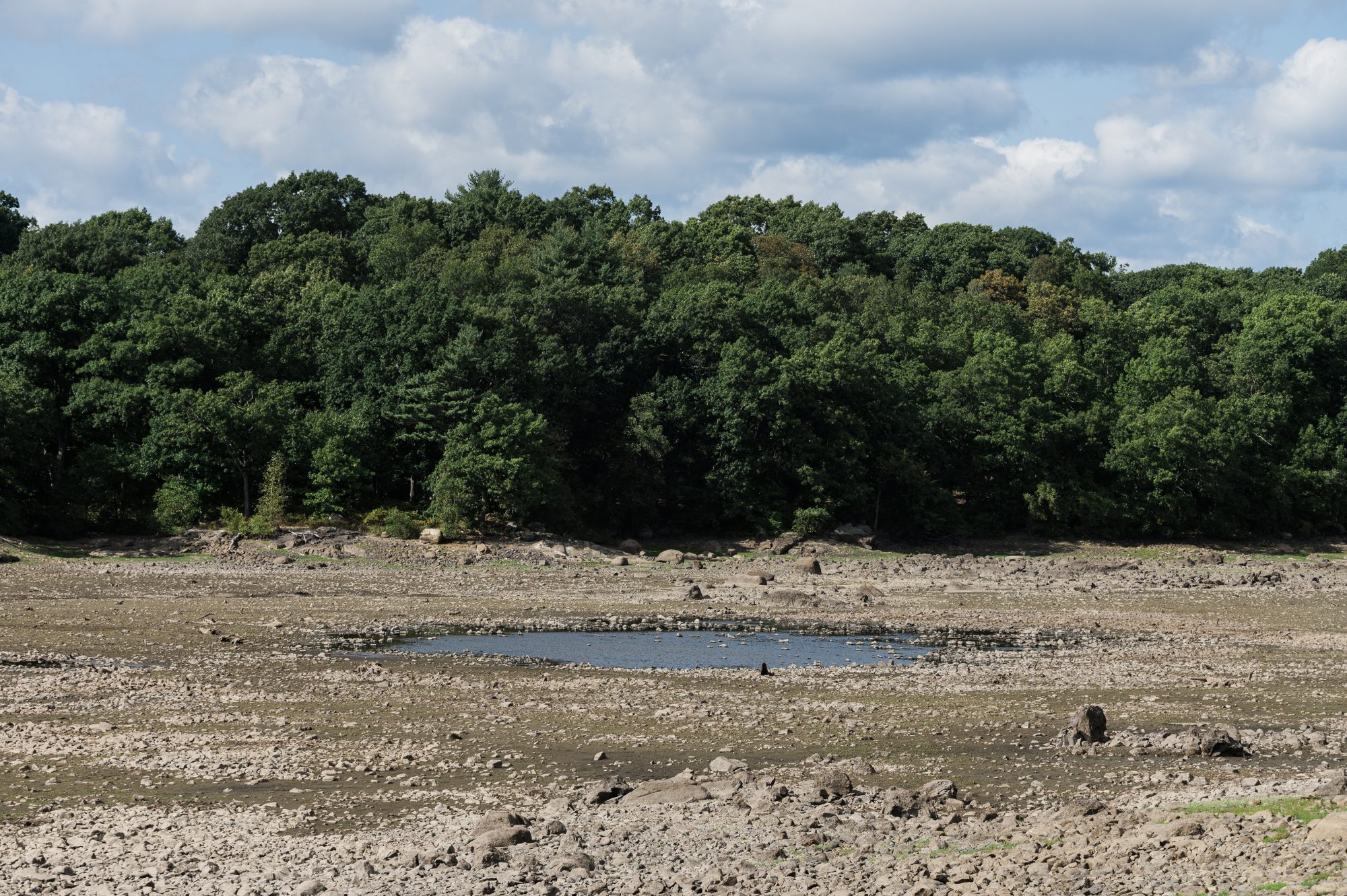LYNN — The city’s Water and Sewer Commission (WSC) is placing a mandatory restriction on all outdoor water usage in Lynn amid dwindling reservoir levels, effective Thursday, Sept. 15.
Richard Dawe, the commission’s water superintendent, said the Lynn Reservoir, was at 50.4 percent capacity on Tuesday, dipping below the 51 percent threshold for mandatory water curtailment response.
The ban on outdoor water use, also requests that the Lynn Department of Public Works shut off water for sprinkler use in greenspaces such as public parks, playgrounds, and flower beds. Additionally, the commission requests that DPW turn off the water at the Gannon Municipal Golf Course and that restaurants only serve water to their customers upon request.
The commission said in a statement that those who violate these restrictions will be given a written warning at their first offense, and will face fines and/or termination of service after repeated violations.
Dawe said that the city has been hit with significantly low levels of rainfall, accumulating less than 12 inches since March, while the season average is 25 inches of rain. He said that to get out of the drought, the city would have to see an abnormal abundance of rain in the coming weeks.
“Right now the ground is very, very dry. The rivers themselves are under a lot of stress, so I couldn’t tell you exactly how [the drought could end] but it would probably be with an abnormal rain event, probably like five or six inches of rainfall would start to get things moving. And then it would have to be a continuing pattern,” Dawe said. “First, we would have to recharge the aquifers, and then if we obtain a pattern that would give us about an inch a week, about three to three and a half, to four inches a month, that’s about normal for here.”
Dawe added that with colder temperatures slated for fall and winter, the city needs to conserve as much water as possible before snow or ice block water runoff back into the reservoir.
“As precipitation falls, snow or rain freezes afterward. It gets held in the ground or in the snowpack and it doesn’t flow into the rivers or into the reservoirs. So even though the ground’s gotten wetter, it’s a frozen precipitation type, which could actually prevent you from benefiting from it. Another problem could be if we have a hard freeze, it could create water main breaks, which would mean a lot of lost water in high consumption through the lost water. So there are those factors to consider in the wintertime,” Dawe said. “Just because it gets wetter, if the weather conditions are the right way, then it could actually be detrimental to you as well.”
In addition to the current ban on excessive water consumption, the commission recommends that residents help the city conserve water by checking for leaks in their pipes and faucets, and also to not let water run while brushing their teeth or shaving, and to only use dishwashers and laundry machines for full loads.
Anthony Cammalleri can be reached at [email protected]

